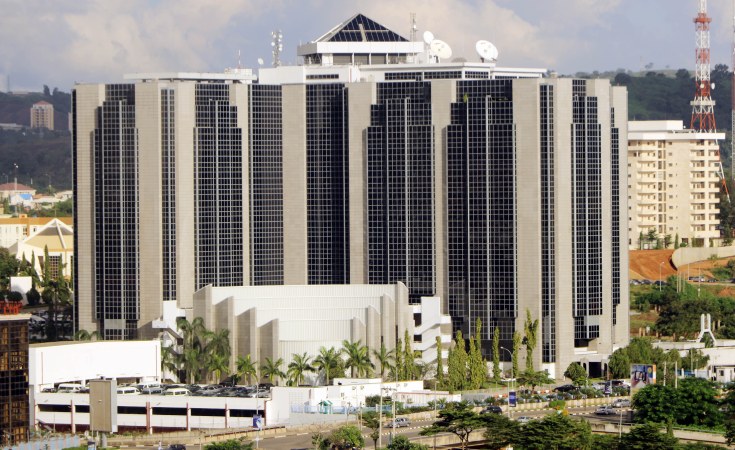Inflation is a force! It is a powerful force that few powers can withstand. It is a mortal enemy of Central Bank governors. It neither has regard for treasury officers and fund managers nor does it give a hoot about the permutations of a finance minister. Our mothers and wives know how detrimental inflation can be because it disrupts their plans each time they go to the market.
Whatever list they go to the market with, inflation throws them off-balance and guess what, the man of the house and the children can’t understand why “mama” is cutting down their protein and other essentials.
- Senate moves to regulate house rent in Abuja
- National Assembly ignores calls to override Buhari, begins electoral bill review
So worrisome, the world is battling with this monster now, rising to an average of seven per cent in the United States and many of the developed world, the highest last since about four decades ago. While Nigeria has been heaving a sigh of relief, as headline inflation eased for eight consecutive months to 15.4 per cent in November, the chicken seems to have come home to roost, as the National Bureau of Statistics busted the bubble that inflation rate was 15.63 per cent in December 2021, a sharp reversal of trend, signalling we may be back to the pressure and worst still Nigeria’s case is very peculiar.
Whether the NBS reported it or not, our mothers and wives have been screaming loud that the price of everything has been consistently rising, a reality that continues to throw many Nigerians into penury, as income levels are paradoxically either stagnant or declining. Nigerians are direly struggling to understand the dichotomy of the previous decelerating inflation rate and the reality of their experience in the market, of course, because the average basket of goods that the majority of Nigerian consumers buy may have changed from what the CPI basket represents.
Importantly, as inflation erodes Nigerians’ purchasing power, standards of living continue to get worse. It’s an economic phenomenon that is fast escalating the already tensed social issues. In fact, anecdotal evidence shows that the sporadic and widespread civil unrest and security issues in many parts of the country are partly offshoots of the worsening standards of living.
While the developed countries can successfully use monetary and fiscal policies to effectively combat the monster called inflation, Nigeria’s situation is unfortunately complex. Of course, because we are highly import-dependent, we would even have a fair share of the rising prices of goods in the global market, but much more than the global phenomenon, we have major structural issues, ranging from prevalent insecurity that constrains productive activities, to politically encouraged rent-seeking and sometimes ostentatious lifestyle of some Nigerians.
Few people now seek genuine income but virtually everybody wants luxury. A consuming nation must be a producing nation, otherwise, something will snap in the economy. Once that thing snaps the obvious consequence is a runaway or recurring inflation that further pauperises the poor.
The trouble of inflation in Nigeria is a demand and supply issue. Compared to many nations of the world, our productivity is low, yet we want to mimic their consumption and lifestyle. We live in fantasy, deluding ourselves that we are a rich nation. With that, inflation is inevitable because demand outstrips supply. We rely on the little dollars we earn from oil to importing everything because we want to consume everything we see on Youtube and Netflix.
The earlier we got serious with work, the better. Where are the cocoa farms of old Nigeria? Where are the groundnut pyramids? Where are the oil palm plantations? These are the landmarks that defined Nigeria as a wealthy nation. We left them and they, in turn, left us. Many of them are now either estates or forests that have become homes for bandits.
Some economists say the monetary policy committee should be proactive in raising interest rates to stem inflationary pressure. I doubt it would do any magic if at all it works because the transmission mechanism is almost, if not totally, broken down. You don’t fight inflation by just raising interest rates in a country where the average Nigerian has no credit. The real fight against inflation lies with the people who need to work to produce and consume what they produce. The real fight lies in checkmating corrupt officials both in public and private sectors, who run down the country’s economic resources and those employees who run down businesses without consequence.
Recommendations for tighter monetary measures to fight inflation must be taken in context. The IMF, for instance, must know this is not America and it is not China. This is Nigeria and fighting inflation requires a true change in the social and economic structures as there is little or nothing a tighter monetary policy would do to tame the rising inflation here.
Politicians and their cronies in public and private sectors who steal Nigeria’s wealth to fund their lifestyle would not reduce their consumption because you raise the interest rates. Sadly, the Nigerian governments would not reduce their borrowings even if inflation goes to the roof. They would rather fund their luxuries and neglect capital project if the only revenue they generate and what they borrow can only pay salaries and keep their luxury overheads.
The current order must change, and everybody must be ready for plain sacrifice if we all seek to build the Nigeria of our dream. China didn’t progress by accident and it is still dealing with its internal issues and its people are still making sacrifices through hard work and patriotic leadership. Why would Nigeria’s case be different?
Nigeria cannot develop on a platter of gold. This is beyond APC or PDP chairmanship or gubernatorial ticket. This is an economic reality!

 Join Daily Trust WhatsApp Community For Quick Access To News and Happenings Around You.
Join Daily Trust WhatsApp Community For Quick Access To News and Happenings Around You.


